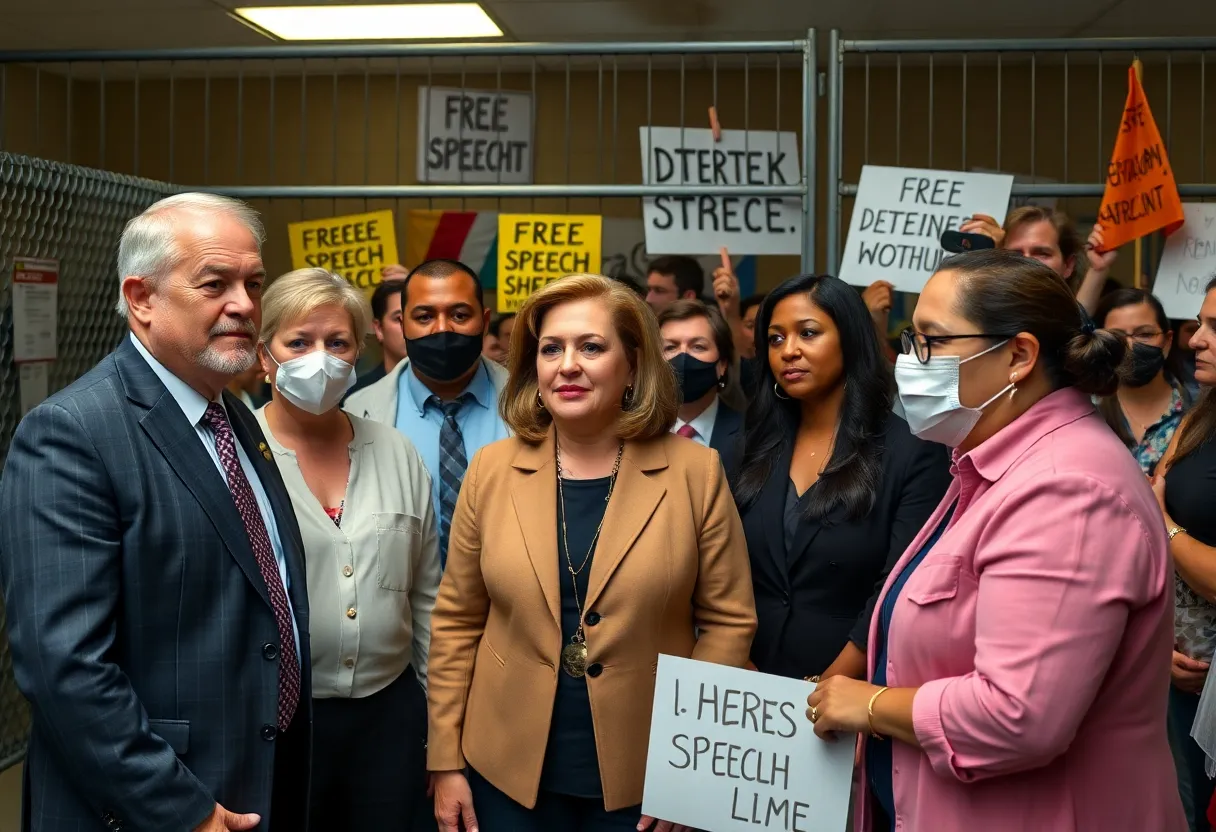News Summary
Kilmar Abrego Garcia’s wrongful deportation has ignited widespread anger after he was apprehended by ICE while driving home with his son. He was quickly deported within three days to El Salvador, despite a lack of due process. The case raises pressing questions about immigration enforcement and due process rights for immigrants. As the Supreme Court reviews the case, Garcia’s family continues to struggle with his absence amid fears of further deportations. This situation highlights the urgent need for reforms in immigration policies and protections for those facing similar predicaments.
Kilmar Abrego Garcia’s Mistaken Deportation Case Sparks Outrage
Imagine driving home from work, children in the back seat, only to find yourself facing an uncertain future. This was the unsettling reality for **Kilmar Abrego Garcia**, a Maryland man whose life took a drastic turn on March 12, 2025. While he was simply driving home with his son, U.S. Immigration and Customs Enforcement (ICE) agents apprehended him, leading to a legal nightmare that continues to unfold.
The Deportation Mix-Up
In a matter of days, Garcia found himself transported from Maryland to detention facilities across Louisiana and Texas, all while his family was left grappling with his sudden disappearance. A federal judge pointed out that Garcia was **deported within three days**, with no prior **notice** or **legal process**, landing him in a notorious prison in **El Salvador**. To add insult to injury, the U.S. government claimed that his deportation was merely an **administrative error**. However, this “error” has put Garcia in a perilous situation, leaving him to navigate the dangers of prison life in El Salvador.
Legal Tug-of-War
Garcia’s case quickly spiraled into a legal saga, prompting a Maryland court to rule that he should return to the U.S. However, Trump’s administration responded with a statement, asserting they couldn’t compel El Salvador to comply with the court’s order. They argued that the judge lacked the legal authority to mandate Garcia’s return, showcasing the complexity and the grey areas of immigration law in the country.
The Supreme Court has temporarily paused lower court rulings while evaluating the specifics of the case. This situation has become a legal hotbed that tests the boundaries of **due process rights** for immigrants, especially in light of the Trump administration’s strict immigration policies.
Contradictions and Legal Challenges
U.S. District Judge Paula Xinis criticized ICE officials for their failure to adhere to established deportation procedures, while the **Fourth Circuit Court of Appeals** backed the notion that individuals legally present in the U.S. cannot be detained without sufficient legal justification. Legal experts stress that Garcia’s story raises critical questions about the deportation powers wielded by the government, especially concerning immigrants with established lives in the U.S.
Garcia is not alone in his plight; reports indicate he is among **238 Venezuelan** and **23 Salvadoran** individuals deported under the previous administration’s policies. Many of these deportations stemmed from **allegations of gang membership**, a label that Garcia’s attorneys maintain is unfounded. They argue Garcia has no criminal ties and had previously secured **withholding of removal** based on fears of persecution back home due to gang violence.
Community Impact and Fear
Garcia’s ongoing detention has created ripples of anxiety throughout the Salvadoran community in Maryland, with many feeling threatened by the administration’s approach to immigration enforcement. Families worry about being torn apart, and advocates are passionately calling for reforms that safeguard immigrant rights amidst the chaos of deportations and legal battles.
Throughout the convoluted factors influencing Garcia’s case, immigration advocates and legal experts have voiced their concerns about the broader implications this case holds for future immigration policies. As the legal proceedings unfold, the outcome could serve as a significant precedent, impacting the lives of countless immigrants facing precarious situations similar to Garcia’s.
What Lies Ahead
As the Supreme Court deliberates, the family’s struggle continues, and Garcia remains isolated from his wife and kids, who are desperately trying to cope with his absence. With fears of wrongful deportations looming heavy in the air, the urgent call for transparency in the immigration enforcement process has never felt more pressing. The eyes of the community are on this pivotal case, waiting to see how it will shape the future of U.S. immigration law and the rights of immigrants.
In this age of uncertainty surrounding immigration, Garcia’s ordeal serves as a reminder of the human lives at stake and the consequential impact of policies that affect families in unimaginable ways.
Deeper Dive: News & Info About This Topic
- NBC Washington: Supreme Court Weighing Mistakenly Deported Maryland Man’s Return to US
- CBS News: Maryland ICE 287(g) Law Enforcement Immigration
- BBC News: Article on Kilmar Abrego Garcia’s Case
- AP News: ICE and Trump’s Immigration Policies
- CNN: Maryland Father Deported to El Salvador
- Wikipedia: Immigration in the United States
- Google Search: Kilmar Abrego Garcia
- Google Scholar: Immigration Law Due Process
- Encyclopedia Britannica: Immigration Law
- Google News: Kilmar Abrego Garcia Deportation






